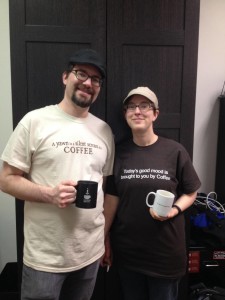INTERCONNECTIVITY: Easter and the Justice of God – The Path of Emptying
VJN invited Amanda and Brandon Neely to share about Lent as a season to remember the poor.
On February 18, 2015, Ash Wednesday, lots of articles came out on the web with Lenten themes. Two caught my attention and stuck with me because they included an appeal to remember the poor during this season.
- Christianity Today published an article titled, “A Lent That’s Not For Your Spiritual Improvement.” The author Kevin P. Emmert is promoting the idea that Lent is about both identifying with Christ and doing so for the sake of others.
- Time published an article titled, “Pope Francis’ Guide to Lent: What You Should Give Up This Year.” The author Christopher J. Hale is summarizing Pope Francis’ Lenten message for lay people. Pope Francis’ message promoted the idea that we should fast from indifference thereby “feeling compassion at the outcry of the poor, weeping for other people’s pain, and feeling a need to help them…”
Both of these articles remind me of a hugely powerful concept I’ve been discovering in life lately – emptying. The CT article even goes into the theology of emptying for a few sentences. I totally agree with Andy’s previous blog post about living more with less. All of this might even sound redundant after seeing his post. Yet, I would like to emphasize the emptying beyond a material de-cluttering or a fasting from food or drink.
My experience with emptying is that what I need emptied of most are my mental and emotional barriers that keep me from connecting with God, with people, and even with myself. Personally, and probably like many Americans, I need to be emptied again and again of my sense of entitlement. This isn’t an easy process though. Sacrifice hurts.
M. Scott Peck in his book A Different Drum writes about emptiness as a step between chaos and true community. He writes that there are two ways out of chaos: organization and emptiness. There’s no way I can organize my sense of entitlement. I might be able to organize my possessions and my schedule such that I can live with less stuff and less on my to-do list. I can’t organize my mental and emotional barriers.
Like fasting, I’ve found that emptying is best initiated by the Holy Spirit. Remember Jesus was driven by the Holy Spirit into the wilderness for his 40 days of emptying. When the Holy Spirit has initiated, I get the opportunity to stay on the journey from there.
Here’s what keeps me on the path of emptying: I seek after better things to replace these barriers that are being broken down. It’s not about being and staying empty. It’s about filling that void with relationship. If my sense of entitlement is a barrier that I’m seeing destroyed in my life, I want to see that barrier replaced with more appreciation of the imperfections in life. If I’m accepting that I’m not entitled to a perfect or even a good life, I can embrace both the imperfections in myself and in others.
Now that’s a powerful element of the justice of God’s Kingdom – breaking down the barriers that separate people and replacing them with something that brings people together. Beauty from ashes. Changing the world, starting with my own mental and emotional barriers.
___________________________________________
A bit about the authors:
Today’s post was authored by Amanda Neely, Amanda and her husband Brandon live in Chicago, Illinois. The Neelys are owners of Overflow Coffee Bar, the 17th L3C in the state of Illinois. An L3C is a Low-profit, Limited Liability Corporation. Overflow is located in the South Loop neighborhood of Chicago at 16th and State Streets. The Neelys started Overflow as a way to build community in such a new neighborhood, while also enriching the lives of people around the world through using fair and direct trade products. Overflow hosted the first-ever Vineyard Justice Network Summit in 2013. Amanda is also Director of the Daystar Center, a community center in the same building as Overflow.


